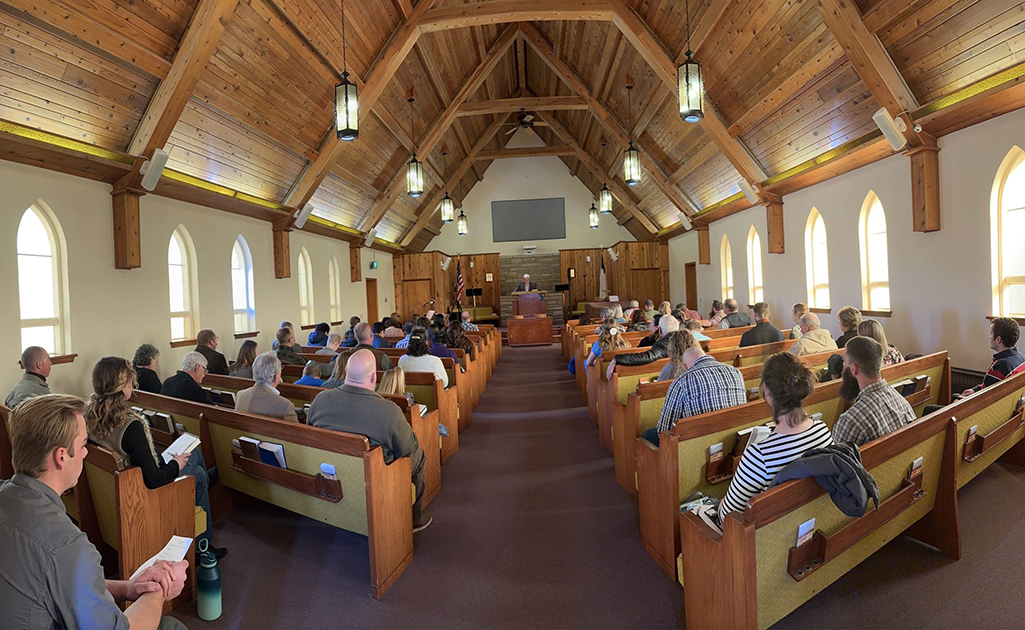Gen Z adults, those 25 and under, match elders in a desire to share their faith, and lead all ages in their openness to spiritual conversations, the American Bible Society (ABS) said Sept. 8 in releasing its latest chapter of the 2022 State of the Bible.
More than half, 54%, of Gen Z and elders expressed a desire to share their faith with others, and 58% of Gen Z engaged in individual spiritual conversations with three or more persons in the past year, more than any other age group studied. The ABS defines elders as age 76 and older.
“We asked a range of questions with different phrasing – sharing faith, having spiritual conversations, talking about the message of the Bible,” ABS said of its survey. “The Bible itself expresses the work of evangelism in various ways (preaching, reconciling, conversing, answering), so we felt comfortable approaching the subject in different ways.”
The findings are a good report for Gen Z, ABS said, in contrast to the previous release from the 2022 report placing a large percentage of Gen Z among committed Christians who don’t attend church at least once monthly.
“We’re especially encouraged by Gen Z. Our last chapter included some causes for worry, but here we see a desire for faith-sharing among scripture-engaged young people,” ABS said in releasing the report’s sixth chapter, focused on evangelism. “We also see signs of a greater openness to spiritual conversations in the Gen Z culture.
“As with many other factors in State of the Bible, evangelism is strongly associated with scripture engagement and church attendance. Those who are committed to the Bible and the church are far more likely to be committed to sharing their faith.”
Factors that likely influence Gen Z’s gospel sharing, ABS said, are changes in American culture that have made the gospel “genuinely new” to Gen Z. American culture is “less overtly Christianized,” and methods of evangelism have adjusted to include Christian music, films, novels, streaming television and internet memes.
Among other generations, 45% of millennials and Gen X, and 50% of boomers said they wanted to share their faith. When it came to actually sharing their faith with others, 54% of boomers said they shared their faith with at least three people in the past year, the age category ranking closest to Gen Z. Among others, 52% millennials, 51% of Gen X and 45% of elders shared their faith with at least three others.
“Are we seeing a generational shift in openness to spiritual matters?” ABS asked. “Where previous generations learned to avoid religious talk, our findings suggest that Gen Z is breaking those barriers.”
Feeling inadequate in social interactions (19%), a lack of knowledge of faith issues (15%) and fear of what others will think of them (12%) rank as the top three obstacles to evangelism among scripture-engaged Christians of all ages. Gen Z described their top obstacles as a lack of knowledge of faith issues (31%), guilt about inconsistencies in their own lives (22%), and being unsure about their own faith (19%).
Yet, practicing Christians overwhelmingly (96%) expressed some degree of satisfaction with their church’s role in helping them learn to share their faith, with 29% extremely satisfied, 31% very satisfied, 23% satisfied and 14% somewhat satisfied.
The desire to share one’s faith is also impacted with such factors as educational level, decreasing as education increases; residency, with rural communities surpassing suburbanites; race and ethnicity, with more non-Hispanic Blacks expressing a desire to evangelize than non-Hispanic whites; and southerners surpassing westerners and northeasterners.
ABS researchers collaborated with the University of Chicago’s National Opinion Research Center to survey a nationally representative group of American adults on topics related to the Bible, faith and the church. The study conducted online via telephone produced 2,598 responses from a representative sample of adults 18 and older in all 50 states and Washington D.C.
(EDITOR’S NOTE – Diana Chandler is Baptist Press’ senior writer.)


